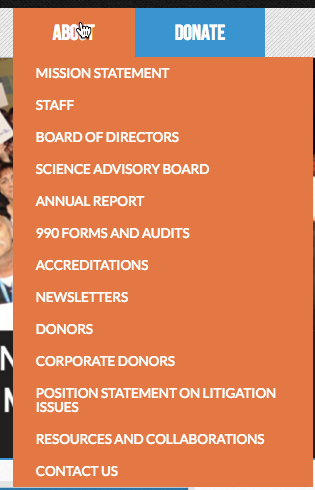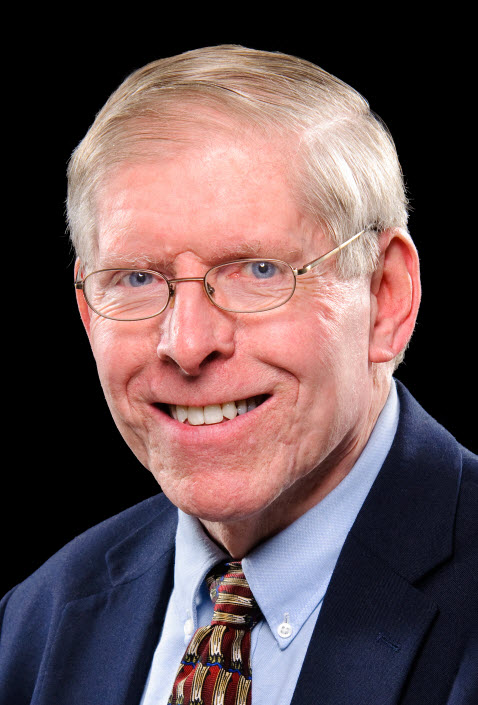Last updated 4/28/2019. See others in comments below that I haven’t added here yet.
There are many, many more communities than the few listed below. Post them in a comment, and I’ll add them here when I can.
Special note for rare diseases: NORD (National Org of Rare Diseases) and GARD (Genetic and Rare Disease Info Center) are good places to start. Friend Larry Fagan sent this GARD tutorial on hunting down specialists when a disease is so rare that docs are hard to find.)
Please note:
I don’t have the resources to check these out myself.
As with everything you do online, “shop wisely.”
And my advice is: Never assume that any one source is perfect –
no patient community, no book, no web site, no journal article, no physician, no nothing.
As ACOR founder Gilles Frydman said, “All knowledge is in constant beta.”
You are responsible for the information you gather;
check and re-check.
Kidney cancer:
ACOR’s kidney cancer group is now at SmartPatients.com.
Robin Martinez, who was the heart and soul moderator of the ACOR group I joined,
now works at SmartPatients.
Lists of communities, lists of lists:
- ACOR: The home page has a master list of ACOR cancer patient communities.
- An ACOR community is not web based; it’s just an email list (Listserv®).
- New method (2012): Click the community name to get a JOIN screen. Here’s the one for kidney cancer: http://www2.acor.org/listservs/join/72
- Old method (still works): You subscribe and unsubscribe by email.
- All ACOR lists work the same; as you’ll see, each has a name, e.g. KIDNEY-ONC for kidney oncology and NHL for Non-Hodgkins Lymphoma. Look for your cancer, and click it.
- You subscribe or unsubscribe to an ACOR list by simply sending a special email to a particular address. Instructions are on each disease’s page.
- For instance, here’s what it says for non-Hodgkins lymphoma (the “NHL” list):
“To subscribe, send mail to LISTSERV@LISTSERV.ACOR.ORG
with the command (paste it!): SUBSCRIBE NHL” - ACOR has communities for many cancers; some groups are big and busy, some are small and not very active.
- An ACOR community is not web based; it’s just an email list (Listserv®).
- Inspire.com has a large list of communities.
- Patients Like Me used to be primarily for some neurological conditions but their fabulous software is now available for any disease.
- CureTogether has communities for a number of conditions
- Webicina is a great website that’s a growing library of resources for e-patients.
- Here is their list of patient community sites. It doesn’t yet identify which cancers each site supports, so you have to open each one and look. (Disclosure: I’m an unpaid advisor to this site.)
- Andrew Spong / patient communities is a StumbleUpon list curated by U.K. friend Andrew Spong.
- Dose of Digital has a list.
- Commenter Elaine Finn added her list on Patient Loving Care.
- RareShare, “a unique social hub building communities for patients, families, and healthcare professionals affected by rare disorders..”
- “CancerConnect.com … offers comprehensive cancer information, organized by disease and stage. It is also a free social network for patients, survivors, and caregivers. Members can join one or more of the many ‘communities’ offered.” – from Laurie in a comment below
- Social Medicine, dozens of disease specific communities.
Specific diseases and conditions: (more or less alphabetically)
- Autism: My Autism Team
- Breast cancer: There are many breast cancer communities. Two to know:
- The most amazing to me is BCSM.org, a non-profit that arose out of the weekly #BCSM Breast Cancer Social Media twitter chats. 100% patient-centered and patient-driven, with expert professional help from generous oncologists.
- Here’s their Facebook page and Twitter account @BCSMChat.
- The weekly tweetchat is at #bcsm, but of course anyone can tweet to a hashtag anytime.
- My BC Team
- Be aware that Komen’s annual “Pinktober” marathon has much controversy around it. Here’s the Wikipedia discussion. As always, have your eyes open.
- The most amazing to me is BCSM.org, a non-profit that arose out of the weekly #BCSM Breast Cancer Social Media twitter chats. 100% patient-centered and patient-driven, with expert professional help from generous oncologists.
- Colon cancer: Colontown at Chris4Life.org (foundation)
- Crohn’s Disease (and sometimes colitis):
- Crohnology.com (thanks Ryan Witt)
- Crohnsforum.com (Ken Spriggs et al)
- Crohn’s on Angelfire.com: list of Crohn’s organizations by continent (via Kathi Apostolidis)
- ISCC Irish Society for Crohn’s and Colitis (via Kathi again)
- Depression: See Mental Health below.
- Diabetes:
Caveat: Type 1 diabetes (auto-immune, typically diagnosed in childhood) and Type 2 diabetes (an insulin uptake deficiency, typically acquired at 50+) are two different things. Be sure you know what you’re looking at – many articles say “diabetes” when they only mean Type 1, or “diabetes prevention,” which is only possible with Type 2. Also, pre-diabetes is a loosely defined condition with no online community that I can find – look into the Diabetes Prevention Program (DPP). It worked for me, at my local YMCA.
- DiabetesMine, the original, created by Amy Tenderich and now part of HealthLine
- TCOYD (Take Care of Your Diabetes), created and run by Steve Edelman MD (a Type 1 patient himself)
- diaTribe, an extraordinary research and analysis outfit run by Kelly Close
- The amazing TuDiabetes – “community of people touched by diabetes” at Diabetes Hands Foundation
- For parents of children with diabetes:
- Helaine Ciporen’s T2 Diabetes Families
- American Diabetes Association Parents Forum
- Encephalitis Global is described in this post on e-patients.net.
- Endometrial cancer: see the responses on this post.
- Eye Diseases: a community on Inspire.com was added below by Brhamesh.
- Lung cancer:
- Dr. Jack West at Swedish Medical Center also runs GRACE: Global Resource for Advancing Cancer Education. Here’s their lung cancer page.
- ACOR’s lung cancer communities:
- Non Small Cell Lung Cancer: http://www2.acor.org/listservs/join/81
- Lung Cancer Online Community: http://www2.acor.org/listservs/join/82
- Small Cell Lung Cancer: http://www2.acor.org/listservs/join/83
- Inspire.com’s lung cancer community
- Mantle Cell Lymphoma (MCL): My almost-college-classmate Larry Fagan, MD, PhD manages ACOR’s MCL list and has created this list of tips and resources.
- Mental Health:
- PsychCentral is one of the oldest and best managed peer communities anywhere, on any conditions.
- BigFeels.Club is a brand new peer-to-peer site just started in 2018, growing like a house afire.
-

Look for a clearly labeled About section that says who they are and where the money comes from Mesothelioma: There are lots of liability lawsuits about this asbestos-related condition, so be aware of websites that are funded by attorneys who may only be looking for new lawsuits where they can take a cut. On the other hand, some such sites spend money to produce lists of resources that may truly be useful to you. As always:
- Keep your eyes open, think for yourself; be informed and engaged (e-patients)
- Never let anyone pressure you into anything.
- Any ethical site will have a prominent “About” page, like the one at right from the MARF site, saying who they are and where the money comes from. (Fine print at bottom of page doesn’t count – that’s slimy.)
- Having said that, here are some sites:
- Mesothelioma Applied Research Foundation (that’s their About menu)
- ADAO (asbestos disease awareness org)
- Heather’s page on mesothelioma.com (NOT patient-based as the name suggests – it’s an attorney-based site. The sponsor’s name is in fine print at bottom of the page)
- Multiple Sclerosis: Inspire.com’s MS community
- Parkinson’s Disease: see this post (Jan. 2012) with resources from Peter Schmidt of the National Parkinson Foundation.
- Preeclampsia Forum for patients that have or had preeclampsia or other hypertensive diseases in pregnancy. The website is informative and the forum (link below) is a great support and information network. – from SPM member Ileana Balcu
- Prostate cancer:
- UsToo.org is specific to prostate cancer.
- Health Unlocked is another great “community of communities.” (A friend just told me the patients in his prostate cancer community there often know things his doctors don’t.)
- Sarcoma: See discussion in this Nov. 2013 blog post.
- Skin cancer communities:
- Basal cell carcinoma
- EmpowHER: an actual basal cell community – sweet! Major props to my chorus buddy Kurt Boutin!
- PatientsLikeMe basal cell skin cancer (Thanks to Robert Dellavalle)
- Generic skin cancer
- American Cancer Society: http://csn.cancer.org/forum/145 (Thanks to Jamie Toth)
- Inspire.com: http://www.inspire.com/groups/skin-cancer/ (Thanks to SCAD sister Laura Haywood)
- Basal cell carcinoma
________
Places to find clinical trials:
When an accepted treatment doesn’t exist, or has failed, clinical trials for unreleased drugs can offer additional options. Some options:
- Clinical Trial Select
- FindMeCure.com
- Antidote.me (I used to be on their advisory board – see my page with their search widget)
Additional resources about many diseases:
SPM member and friend Larry Fagan MD PhD writes, “I received this info from the MedlinePlus folks at the NLM” [National Library of Medicine]:
- Local and National Support Groups by Disease (not necessarily online groups)
- Organizations that provide health information
- Directories of health and related services
He adds, “Elsewhere at NIH, these resources may also be helpful:”
An editorial comment about the above:
MedlinePlus uses specific criteria to determine which websites they link to for patient oriented medical information. Because of the home grown nature of some of the online communities many websites may not meet those guidelines, even though they can contain very useful information. (See Larry Fagan’s post on the NLM blog.)
Of course the internet is huge (duh) and nobody has a comprehensive list of websites, and besides, it’ll change by your next meal. So I’m publishing the list above, and as I said at the top, it has the following caveats:
Never assume that any one source is perfect –
no patient community, no book, no web site, no journal article, no physician, no nothing.
As ACOR founder Gilles Frydman said, “All knowledge is in constant beta.”
You are responsible for the information you gather;
check and re-check.


